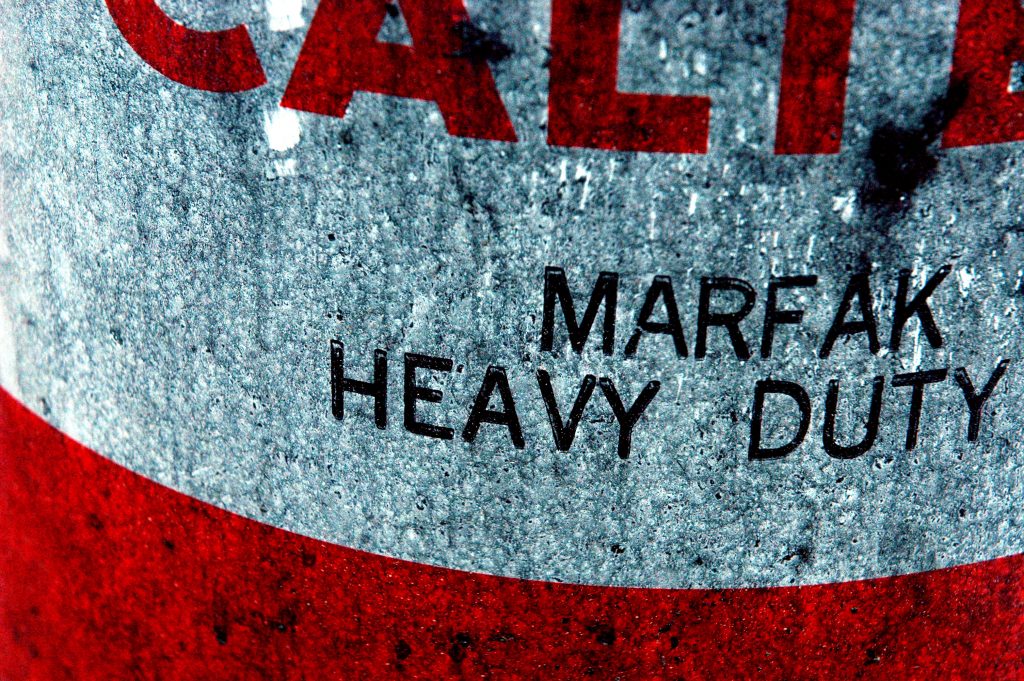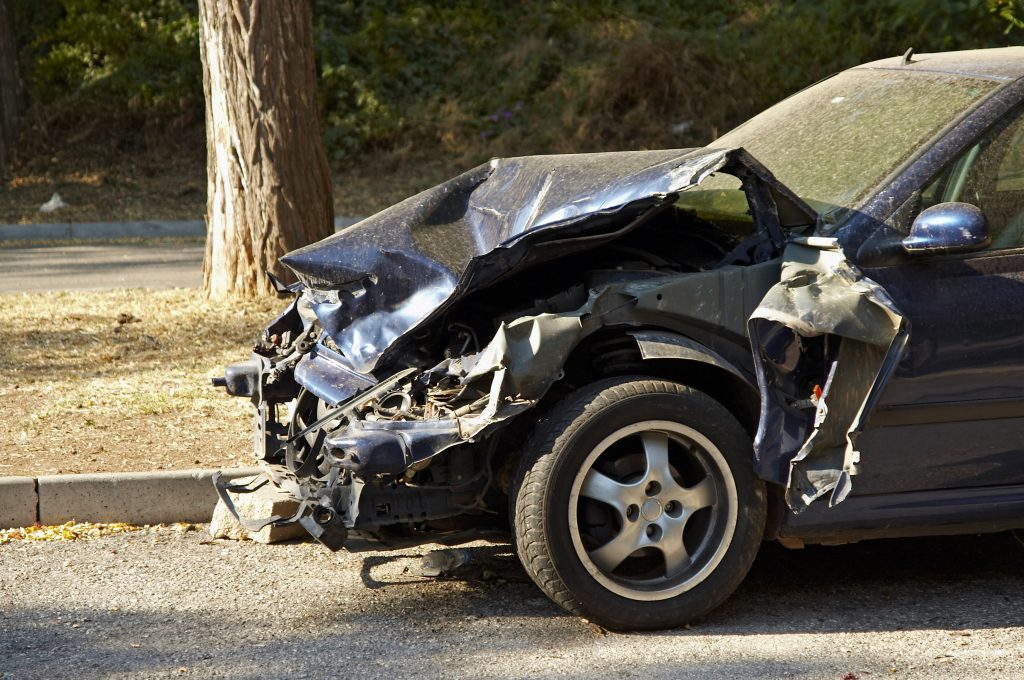 When you ask a friend for a favor, whether it is for a ride to the airport or for help cleaning up a room, you never expect that you will end up facing off against each other in a lawsuit. However, when you do end up in such an unfortunate situation, it is important to have a good lawyer on hand to ensure that the dispute is resolved in the quickest manner possible. Michael P. Cox found himself in just such a situation when his friend Laina Dutton offered to help him clean out the building of his recently closed business, Xtreme Nutrition, located in Baton Rouge, Louisiana. When Mr. Cox was out of the room, Ms. Dutton decided to climb a ladder and remove a banner that was hanging on the wall. The ladder was not in a secure location and Ms. Dutton fell backward off the ladder injuring her back and side. She sued Mr. Cox, Xtreme Nutrition, and Allstate Insurance, the insurer for Mr. Cox and Xtreme Nutrition. Ms. Dutton’s lawsuit for negligence was premised on the argument that Mr. Cox owed her a duty to erect the ladder safely, monitor and assist her in the use of the ladder, and warn her of any danger in using it. She argued that the ladder had been set up in a dangerous manner because it was not placed on a flat surface, that Mr. Cox did not warn her of this issue, and that he was at fault for her fall due to his inattentiveness. Ms. Dutton suffered injuries to her arm, back, and spine. For these injuries, she sought special and general damages.
When you ask a friend for a favor, whether it is for a ride to the airport or for help cleaning up a room, you never expect that you will end up facing off against each other in a lawsuit. However, when you do end up in such an unfortunate situation, it is important to have a good lawyer on hand to ensure that the dispute is resolved in the quickest manner possible. Michael P. Cox found himself in just such a situation when his friend Laina Dutton offered to help him clean out the building of his recently closed business, Xtreme Nutrition, located in Baton Rouge, Louisiana. When Mr. Cox was out of the room, Ms. Dutton decided to climb a ladder and remove a banner that was hanging on the wall. The ladder was not in a secure location and Ms. Dutton fell backward off the ladder injuring her back and side. She sued Mr. Cox, Xtreme Nutrition, and Allstate Insurance, the insurer for Mr. Cox and Xtreme Nutrition. Ms. Dutton’s lawsuit for negligence was premised on the argument that Mr. Cox owed her a duty to erect the ladder safely, monitor and assist her in the use of the ladder, and warn her of any danger in using it. She argued that the ladder had been set up in a dangerous manner because it was not placed on a flat surface, that Mr. Cox did not warn her of this issue, and that he was at fault for her fall due to his inattentiveness. Ms. Dutton suffered injuries to her arm, back, and spine. For these injuries, she sought special and general damages.
However, the lawsuit never made it to trial. The Trial Court granted summary judgment in favor of the defendants and dismissed the case with prejudice. The Trial Court dismissed the case following pre-trial discovery based on its finding that there was a lack of evidence supporting a negligence claim and that Mr. Cox did not owe a duty to Ms. Dutton. Ms. Dutton appealed, arguing that the Trial Court erred in dismissing the case, but the Louisiana First Circuit Court of Appeal affirmed the dismissal. So, why was Mr. Cox not found negligent in Ms. Dutton’s fall?
The Trial Court based its dismissal on its view that Ms. Dutton could not produce enough evidence to support the negligence claim. This was because Ms. Dutton was not an employee of Xtreme Nutrition, and Mr. Cox did not pay her to help him clear out the newly closed offices. Further, Ms. Dutton climbed up on the ladder while Mr. Cox was in another room. He had not asked her to climb the ladder and probably did not even know she had gone up. Ms. Dutton even admitted that she had used the ladder before the fall without any problems and did not think the ladder was defective in any way. Because Ms. Dutton had not been instructed by Mr. Cox to go up the ladder, and there was no evidence that he had set up the ladder in a negligent manner, the Trial Court determined that there was no evidence to support a negligence lawsuit following discovery. Thus, the Court dismissed the case before heading to trial. From this decision Ms. Dutton appealed, arguing that the Trial Court erred in two major ways. First, she argued that the only reasonable explanation for the ladder fall was that it had been improperly set up by Mr. Cox. Additionally, since Mr. Cox had set up the ladder, he owed her a duty to properly set it up and he had failed in that duty when he allowed her to climb the ladder in such an unsafe condition. Second, Ms. Dutton argued that in his deposition testimony, Mr. Cox had admitted that he set up the ladder in a dangerous manner by placing one leg on a part of an adjacent desk and the other on the ground, leading to an imbalance that caused the fall. Ms. Dutton argued that these two points were genuine issues of material fact that should preclude a summary judgment dismissal.
 Louisiana Personal Injury Lawyer Blog
Louisiana Personal Injury Lawyer Blog


 Summary judgment is a judgment entered by a court for one party and against another party without a full trial. More specifically, summary judgment may be granted where the legal claim or cause of action can be decided upon certain facts without a trial. Can you receive summary judgement in a negligence case against a squat machine manufacturer?
Summary judgment is a judgment entered by a court for one party and against another party without a full trial. More specifically, summary judgment may be granted where the legal claim or cause of action can be decided upon certain facts without a trial. Can you receive summary judgement in a negligence case against a squat machine manufacturer? The state is not a guarantor of the safety of motorists using their roads, meaning you must be vigilant and careful while driving.
The state is not a guarantor of the safety of motorists using their roads, meaning you must be vigilant and careful while driving.  Can an inmate be awarded damages from an injury caused by the employees of the correctional facility? According to the 5th Circuit Court of Appeal, the answer is yes. Mr. Miller was an inmate at Elayne Hunt Correctional Facility when an employee of the facility pulled him out of his bunk and threw him on the ground. Miller sued Captain Credit and the State of Louisiana for negligence under state law as well as violations of the 8th amendment under 42 U.S.C. §§
Can an inmate be awarded damages from an injury caused by the employees of the correctional facility? According to the 5th Circuit Court of Appeal, the answer is yes. Mr. Miller was an inmate at Elayne Hunt Correctional Facility when an employee of the facility pulled him out of his bunk and threw him on the ground. Miller sued Captain Credit and the State of Louisiana for negligence under state law as well as violations of the 8th amendment under 42 U.S.C. §§  Grease is often used to make foods easy to remove from pans and baking sheets. It creates a slippery, smooth surface that allows most foods to slide right out of the pan. Unfortunately, when grease meets a wood floor, humans walking over can slide around as well. Sharon Tomlinson found this out the hard way as a waitress led her to a table in a Daisy Dukes restaurant in May of 2011. It is believed that airborne grease particles settled on the floor, causing Mrs. Tomlinson to fall and injure her knee when she stepped off of a commercial rug and onto the allegedly greasy floor.
Grease is often used to make foods easy to remove from pans and baking sheets. It creates a slippery, smooth surface that allows most foods to slide right out of the pan. Unfortunately, when grease meets a wood floor, humans walking over can slide around as well. Sharon Tomlinson found this out the hard way as a waitress led her to a table in a Daisy Dukes restaurant in May of 2011. It is believed that airborne grease particles settled on the floor, causing Mrs. Tomlinson to fall and injure her knee when she stepped off of a commercial rug and onto the allegedly greasy floor.  The bond between people and their dogs can be one as close as family. Whether they serve as pets, guides, or even co-workers, dogs can provide a type of comfort and comradeship that is completely unique. It is sometimes easy to forget that dogs are animals that can chase, scratch, and even bite on a moment’s notice. While most people don’t like to believe that their canine companions would hurt others, many dogs—even the most docile or trained—are capable of causing harm quickly, and it is important to know how to handle these situations. This issue was explored in a case appealed to the Louisiana First Circuit Court of Appeal after an incident at Louisiana State University.
The bond between people and their dogs can be one as close as family. Whether they serve as pets, guides, or even co-workers, dogs can provide a type of comfort and comradeship that is completely unique. It is sometimes easy to forget that dogs are animals that can chase, scratch, and even bite on a moment’s notice. While most people don’t like to believe that their canine companions would hurt others, many dogs—even the most docile or trained—are capable of causing harm quickly, and it is important to know how to handle these situations. This issue was explored in a case appealed to the Louisiana First Circuit Court of Appeal after an incident at Louisiana State University. Under Louisiana law, an owner of a building is not necessarily responsible for all injuries resulting from any risk posed by the building. Owners are only responsible for those injuries caused by defective conditions, and courts have recognized that defendants have no general duty to protect against hazards that are “open and obvious.” The logic behind this approach is that when a risk is open and obvious to everyone, the probability of injury is low. As a result, the owner of the premises is not required to go to the trouble and expense of fixing the condition that could be easily avoided by prudent persons.
Under Louisiana law, an owner of a building is not necessarily responsible for all injuries resulting from any risk posed by the building. Owners are only responsible for those injuries caused by defective conditions, and courts have recognized that defendants have no general duty to protect against hazards that are “open and obvious.” The logic behind this approach is that when a risk is open and obvious to everyone, the probability of injury is low. As a result, the owner of the premises is not required to go to the trouble and expense of fixing the condition that could be easily avoided by prudent persons. Most Louisiana residents understand the liability they may incur if they do not properly fence a backyard pool. But what about other, less obvious drowning hazards, such as a church’s baptismal pool? Who is held accountable for the failure to protect children from falling in? Typically, a church is part of a diocese and must meet the general guidelines established by the diocese in order to maintain its affiliation. For instance, the First Assembly Church of God (“First Assembly”) in Ruston, Louisiana is affiliated with the Louisiana District Council of the Assemblies of God (the “DC”) and the General Council of the Assemblies of God (the “GC”). After a tragic accident involving the toddler of a First Assembly family, Louisiana’s Second Circuit Court of Appeal was called upon to determine whether the DC and the GC had sufficient control over First Assembly to be liable for the church’s negligence.
Most Louisiana residents understand the liability they may incur if they do not properly fence a backyard pool. But what about other, less obvious drowning hazards, such as a church’s baptismal pool? Who is held accountable for the failure to protect children from falling in? Typically, a church is part of a diocese and must meet the general guidelines established by the diocese in order to maintain its affiliation. For instance, the First Assembly Church of God (“First Assembly”) in Ruston, Louisiana is affiliated with the Louisiana District Council of the Assemblies of God (the “DC”) and the General Council of the Assemblies of God (the “GC”). After a tragic accident involving the toddler of a First Assembly family, Louisiana’s Second Circuit Court of Appeal was called upon to determine whether the DC and the GC had sufficient control over First Assembly to be liable for the church’s negligence. It is all too easy to forget just how dangerous driving can be. In addition to human factors such as sleepiness, being distracted, and stress, there is also the unpredictability of the road. Uncontrollable circumstances such as the weather or wild animals that dart into traffic can turn a regular commute into a devastating experience. But who is to blame when something unforeseeable, such as a force of nature, causes a highway catastrophe? This issue was addressed after a multi-vehicle accident on Interstate 10 near the Michael Boulevard exit in New Orleans on December 29, 2011.
It is all too easy to forget just how dangerous driving can be. In addition to human factors such as sleepiness, being distracted, and stress, there is also the unpredictability of the road. Uncontrollable circumstances such as the weather or wild animals that dart into traffic can turn a regular commute into a devastating experience. But who is to blame when something unforeseeable, such as a force of nature, causes a highway catastrophe? This issue was addressed after a multi-vehicle accident on Interstate 10 near the Michael Boulevard exit in New Orleans on December 29, 2011.  Generally, when an accident occurs on a property that is the result of the property owner’s negligence, it is presumed that the property owner is liable for the person’s injury. However, when liability does not exist, a motion for summary judgment is a procedural device that the defendant in a lawsuit can use to dismiss the plaintiff’s claim. Under Louisiana law, a motion for summary judgment will be granted if the pleadings and discovery show there is no genuine issue of material fact and that the party seeking summary judgment is entitled to judgment as a matter of law.
Generally, when an accident occurs on a property that is the result of the property owner’s negligence, it is presumed that the property owner is liable for the person’s injury. However, when liability does not exist, a motion for summary judgment is a procedural device that the defendant in a lawsuit can use to dismiss the plaintiff’s claim. Under Louisiana law, a motion for summary judgment will be granted if the pleadings and discovery show there is no genuine issue of material fact and that the party seeking summary judgment is entitled to judgment as a matter of law.